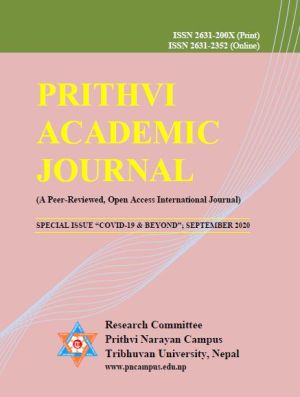Practices of Policy Making and Planning: A Case of Annapurna Rural Municipality in Kaski District
DOI:
https://doi.org/10.3126/paj.v3i1.31289Keywords:
Capacity, connectivity, grass-root democracy, service deliveryAbstract
This paper makes a brief description and analysis of policy formulation and planning process adopted by the local government of Nepal. The main objective of the paper is to study the exercise of policy making and planning of Annapurna Rural Municipality in Kaski District of Gandaki Province, Nepal. The study is based on telephone interviews and person-to-person interviews with elected representatives of the rural municipality and secondary sources of data. Annapurna Rural Municipality has so far formulated more than 23 policies (acts, rules and regulations) for addressing the interest of its citizens. Of these policies, four are acts, two regulations, nine procedural laws and eight codes of conduct. Moreover, official policy makers have a prominent role in public policy making while the unofficial policymakers have little influence on the public policy making. There is no provision of direct participation of people in the policy formulation process. Also, the local government has not developed a practice of taking assistance from hired experts while formulating public policies that demand technical expertise and knowledge. It is observed that the planning process followed by the rural municipality consists of seven steps: tole level assembly, ward level meeting, assembly of Ward, decisions forwarded to office of rural municipality, recommendation by the executive committee, approval by assembly of rural municipality and implementation by executive bodies like the office of rural municipality, ward office, etc. The results indicated that the rural municipality has, to some extent, guaranteed the participation of its citizens in the planning and implementation activities. However, despite the bottom-up approach of planning being practiced, all people, irrespective of their political orientation, do not have equal opportunity to make their voice being heard to the planning process. However, it lacks inclusiveness.




